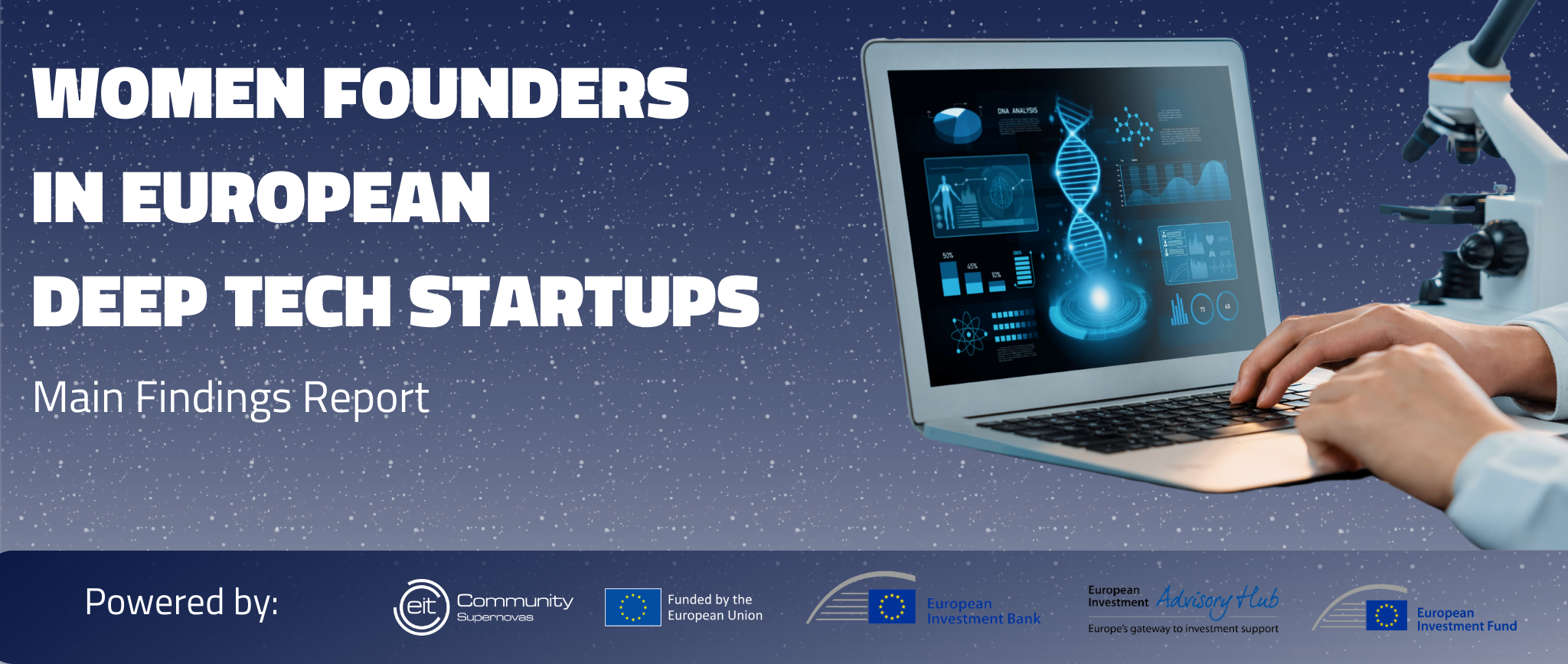Only 15% of the seed funding goes to women-led deep tech start-ups, reveals new study

Study of 7,165 start-ups across 37 countries reveals that the percentage of women founders in deep tech has doubled since 2010, however, women remain underrepresented in the field at 17.4% (average for 2010-2022) of all deep tech start-ups.
The new study, ‘Women Founders in European Deep Tech Start-ups’ reveals that women founders in the field receive less total funding compared with men founders. According to the study, women are underrepresented in deep tech start-ups, with less than one quarter (24%) of deep tech start-ups created in 2022 having at least one woman in the founding team.
The study has been brought forward by the European Institute of Innovation and Technology (EIT), a body of the European Union; the European Investment Fund (EIF) and European Investment Bank (EIB) Advisory Services. The main findings are now available and are being presented at the EIT INNOVEIT conference in Helsinki today. The full Study will be launched during the third edition of the Empowering Equity event, organised by the EIF and EIB Advisory on December 5th.
The EIT conference, INNOVEIT — Pioneering women: driving innovation and investment in Europe — is an event focused on the EIT’s role and impact in boosting women-led innovation and investment across Europe. The conference is showcasing the EIT as Europe’s largest innovation community in Europe and its innovation opportunities in deep tech, women entrepreneurship, sustainability and more.
7,165 start-ups founded since 2010 were analysed as part of the study using the Dealroom database (a global provider of data and intelligence on start-ups and tech ecosystems) across 37 European countries.
This EIT study is a call to overcome the gender gap for investment in deep tech. The percentage of total funding going to deep tech start-ups with women founders stands at only 11.4%. This is a missed innovation opportunity that Europe simply cannot afford. That’s exactly where the EIT comes in. Our programmes, including SUPERNOVAS, are dedicated to strengthening women-led start-ups, providing access to funding, access to markets and clients, mentoring, thematic expertise, all as part of a community of partners across Europe.
Martin Kern, EIT Director
Women remain underrepresented but the trend is moving upwards
Whilst women founders remain a minority, the study finds that the percentage of women over the total number of founders of deep tech start-ups has doubled between 2010 and 2022 (from 7% to 14%). Similarly, whilst women are less likely to start a deep tech start-up on their own, the percentage of solo woman start-ups has been steadily increasing.
The study notes that deep tech start-ups with at least one woman founder are significantly larger in terms of number of people employed, and that larger founding teams are associated with higher employee growth.
The study has also found that most women-led deep tech start-ups launched between 2010 and 2022 come from France with 2,616 (21.0%), followed by Germany and Spain. Netherlands, Italy, Sweden, Finland and Belgium are among the following most represented. In most countries, the percentage of women deep tech founders among all founders is concentrated between 10% to 20% with the average at 17%.
Funding remains a significant challenge
According to the findings of the study, women face significant funding challenges compared with their male counterparts. On average, deep tech start-ups with at least one woman founder receive less total funding, less funding per round, and smaller first rounds. Women-founded deep tech startups receive significantly less funding compared to those founded by men. At the seed stage, women-led startups secure only 15% of funding, while men-led startups take the remaining 85%. For early and late-stage venture capital, women-founded startups receive just 11% of the total investment, with 89% going to men-led companies. Women also face barriers to entering deep tech compared with other fields.
The report also indicates that women in deep tech may face barriers to accessing private investment and are more likely to receive a first round from public sources. Women deep tech start-ups not only receive a lower first valuation than their men counterparts, but they continue to receive lower valuations throughout their start-ups’ growth cycle and are less likely to reach a EUR 20M valuation.
The only positive trend in funding is that deep tech start-ups with women in their founding teams receive their first funding faster than start-ups with all-men founding teams.
In this context, the EIT and its Knowledge and Innovation Communities have launched the Supernovas programme, bringing more women into the world of entrepreneurship and investment as well as supporting women already in it, facilitating women’s engagement in the early-stage investment industry, and igniting growth for women business angels and VC investors.
During the INNOVEIT event, the Supernovas Data Room is also presented – a platform showcasing women-led start-ups in high and deep tech entrepreneurship across all EIT Knowledge Communities: EIT Climate-KIC, EIT Culture & Creativity, EIT Digital, EIT Food, EIT Health, EIT InnoEnergy, EIT Manufacturing, EIT RawMaterials and EIT Urban Mobility. The platform also gives investors, corporates, journalists, publishers and other interested parties access to data about these start-ups.


 Share this page
Share this page


